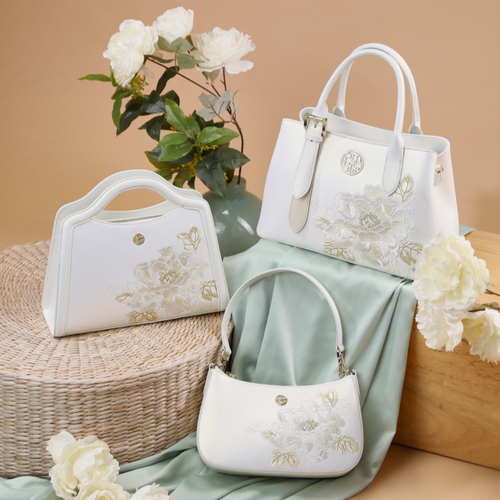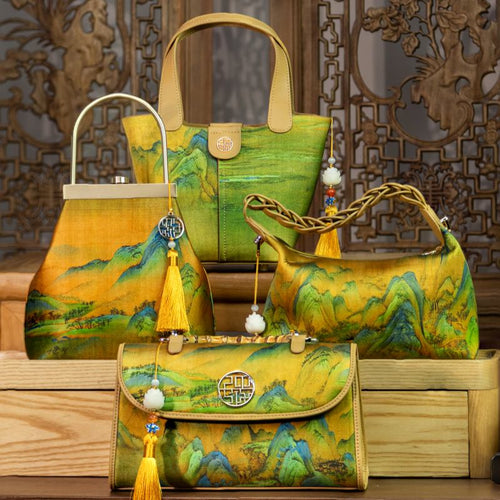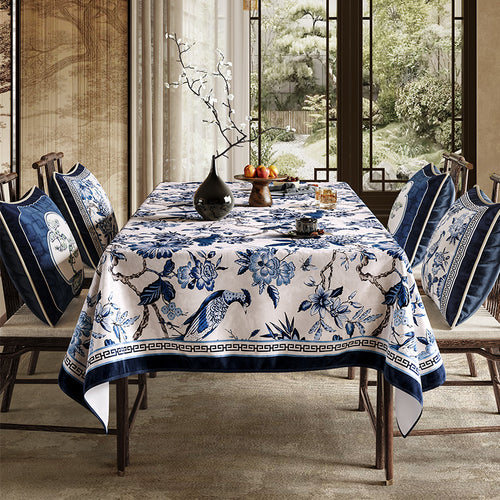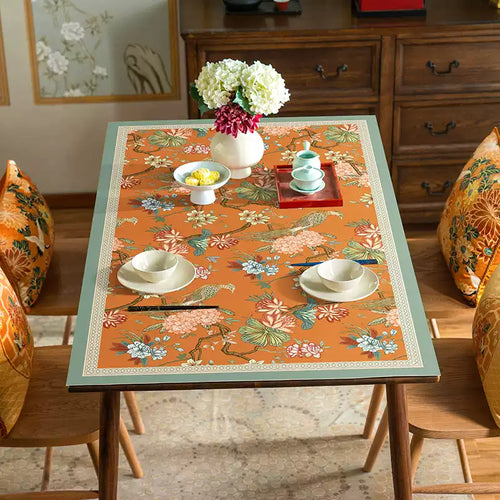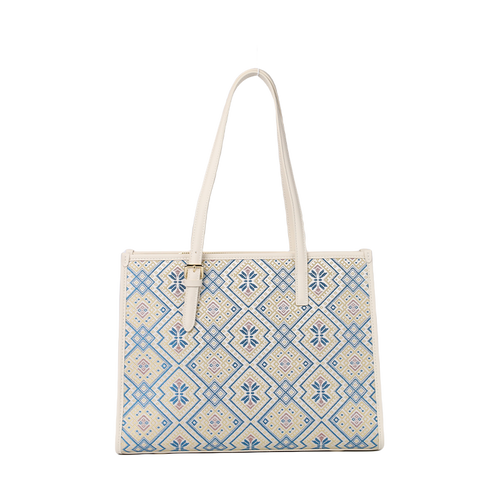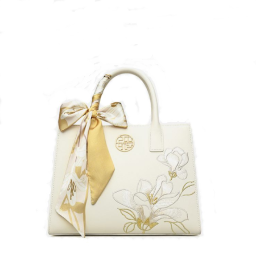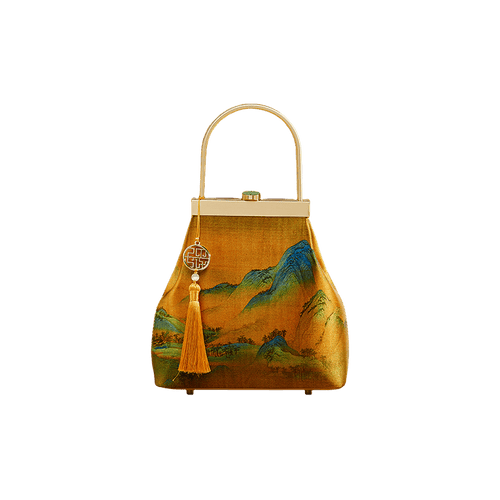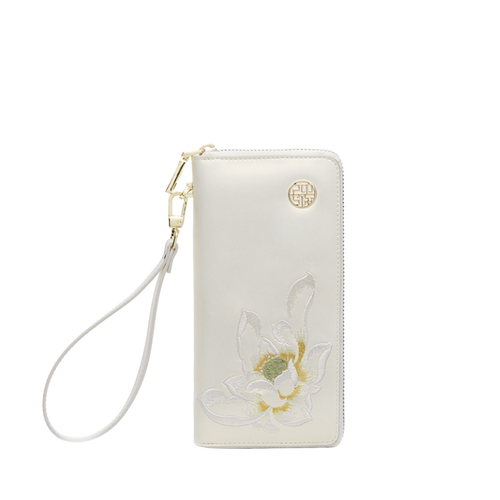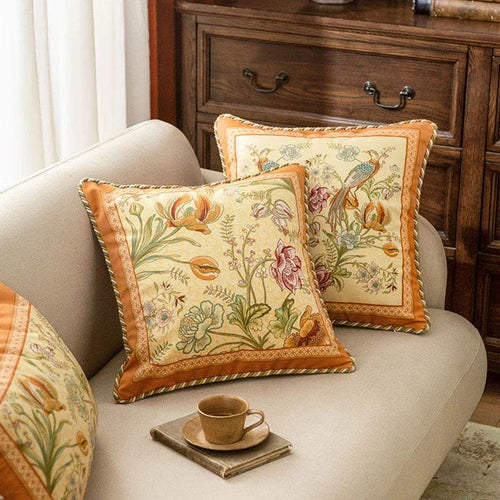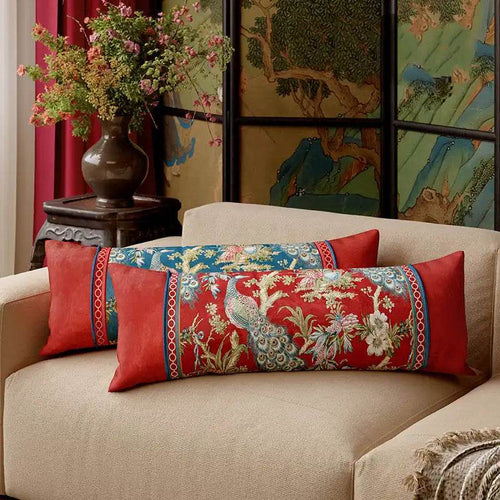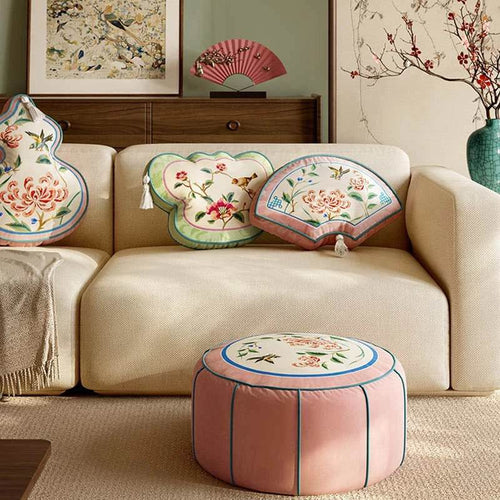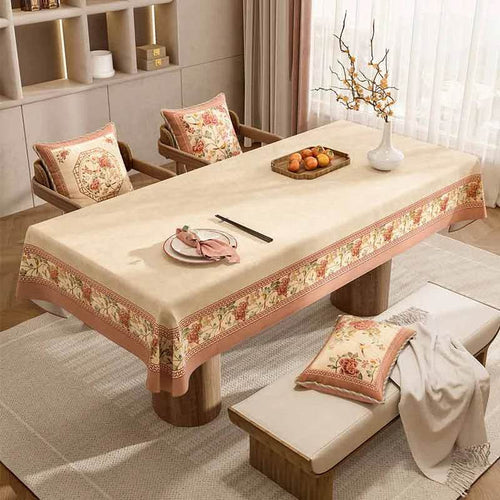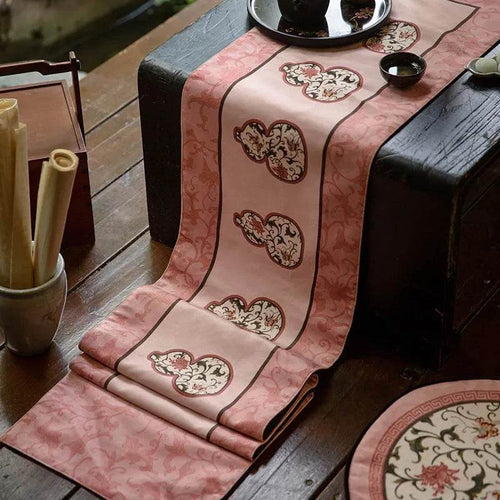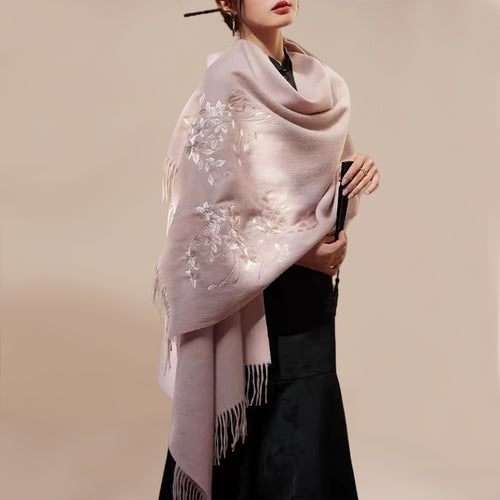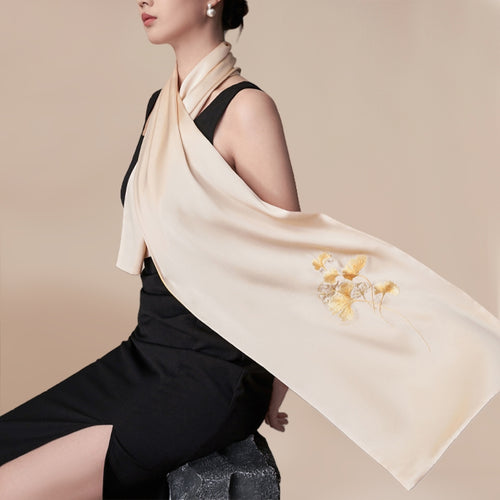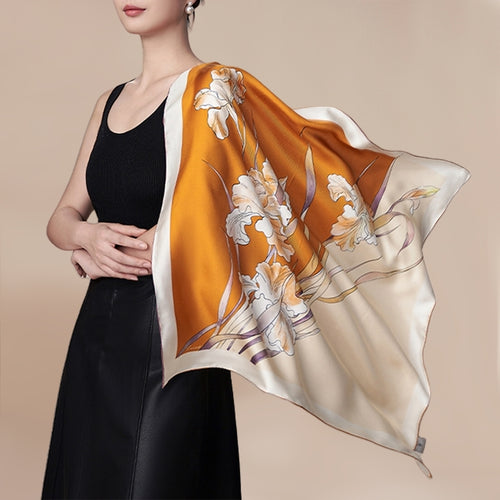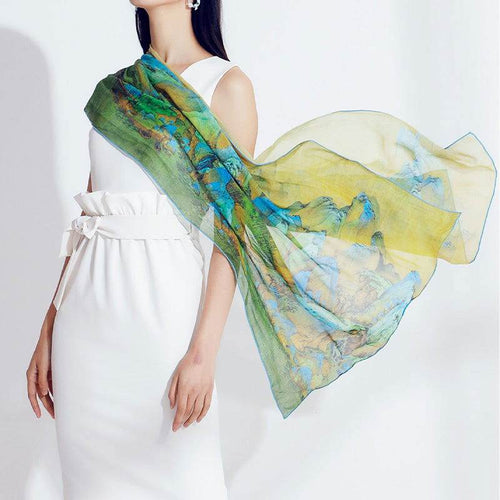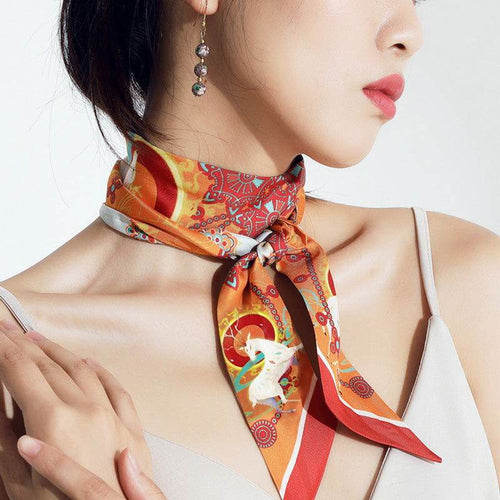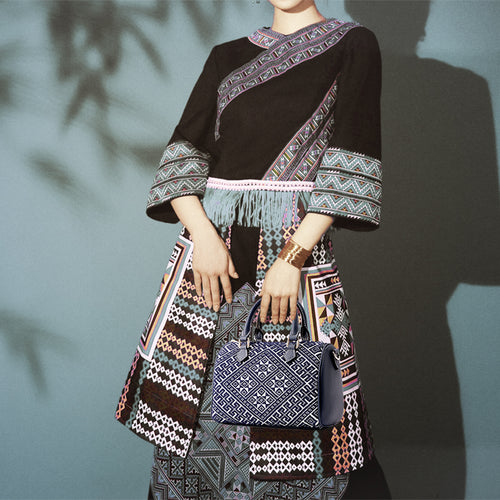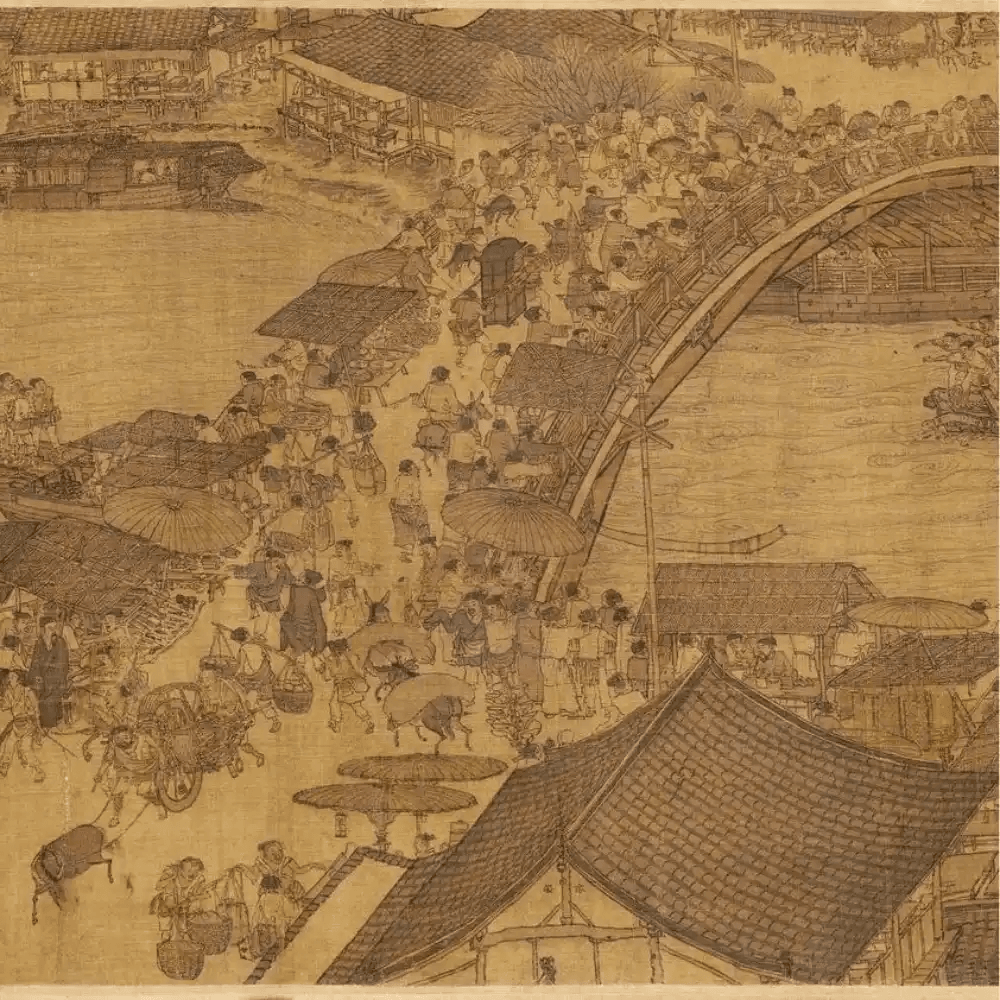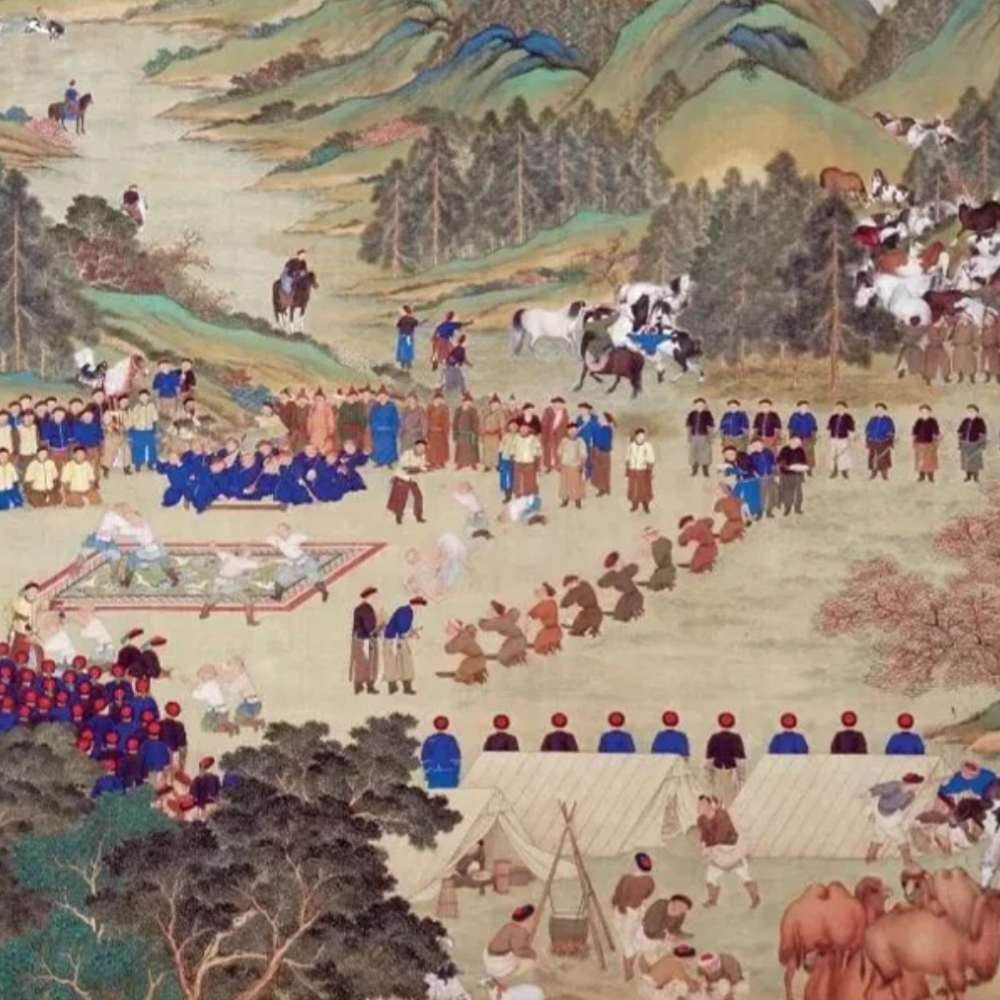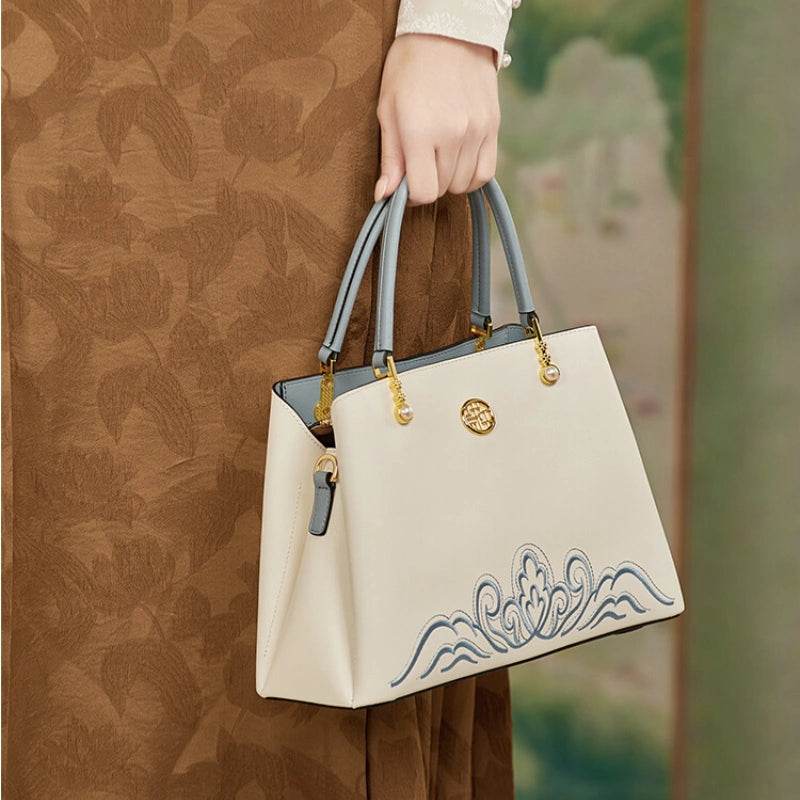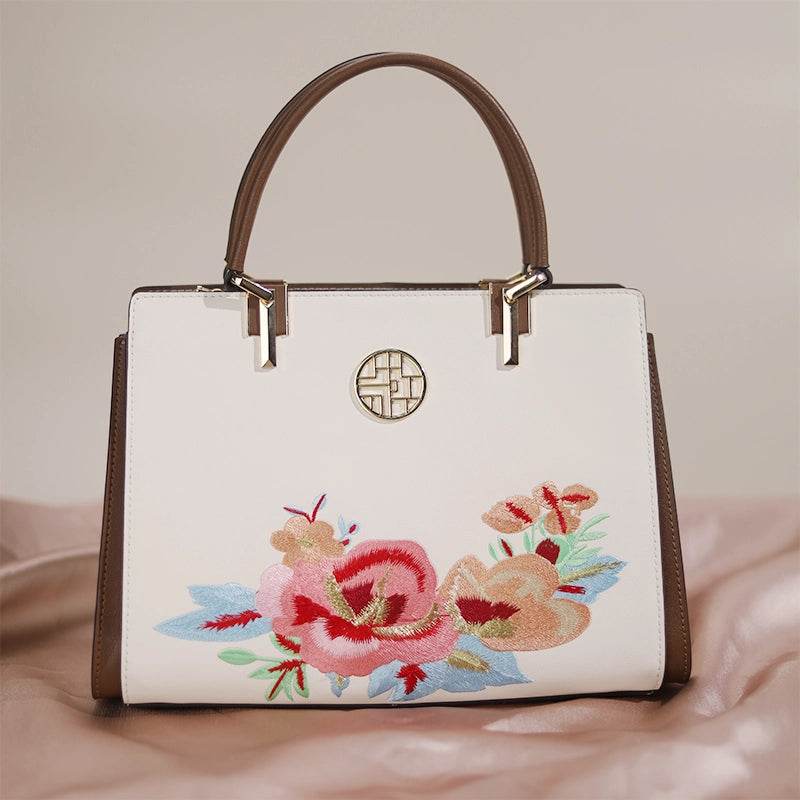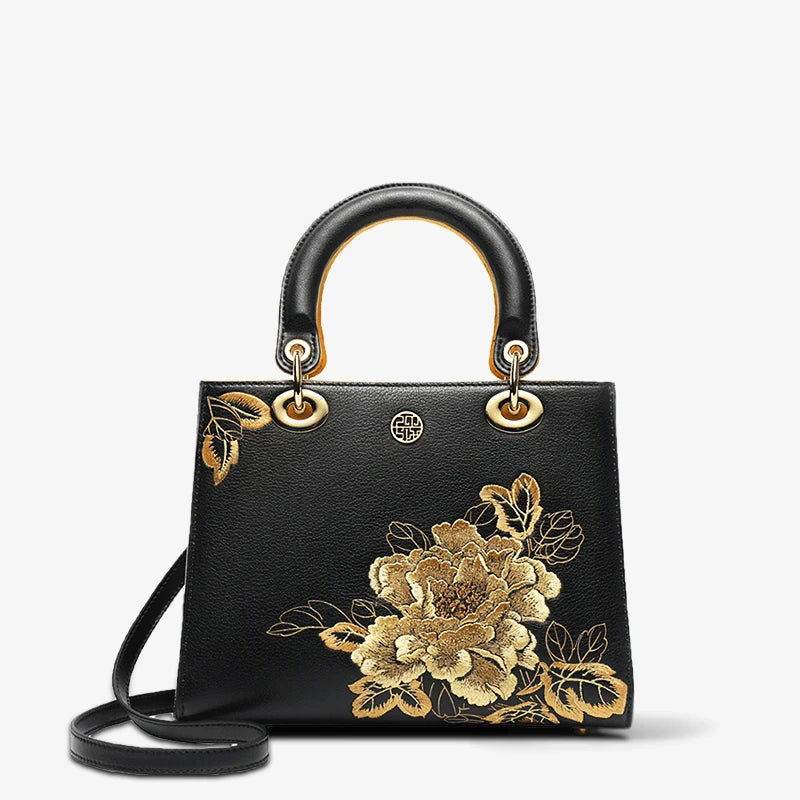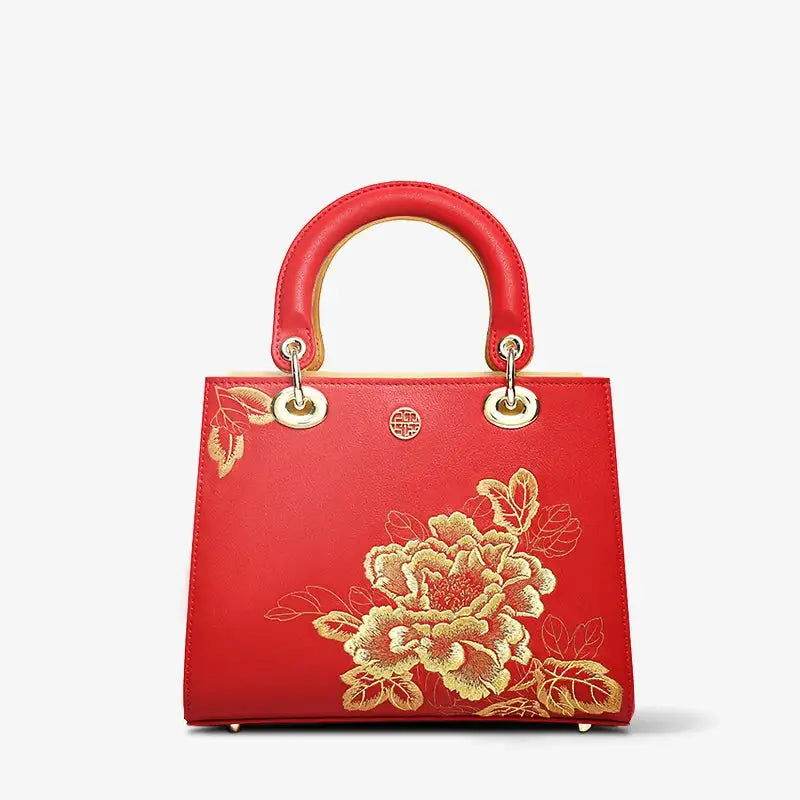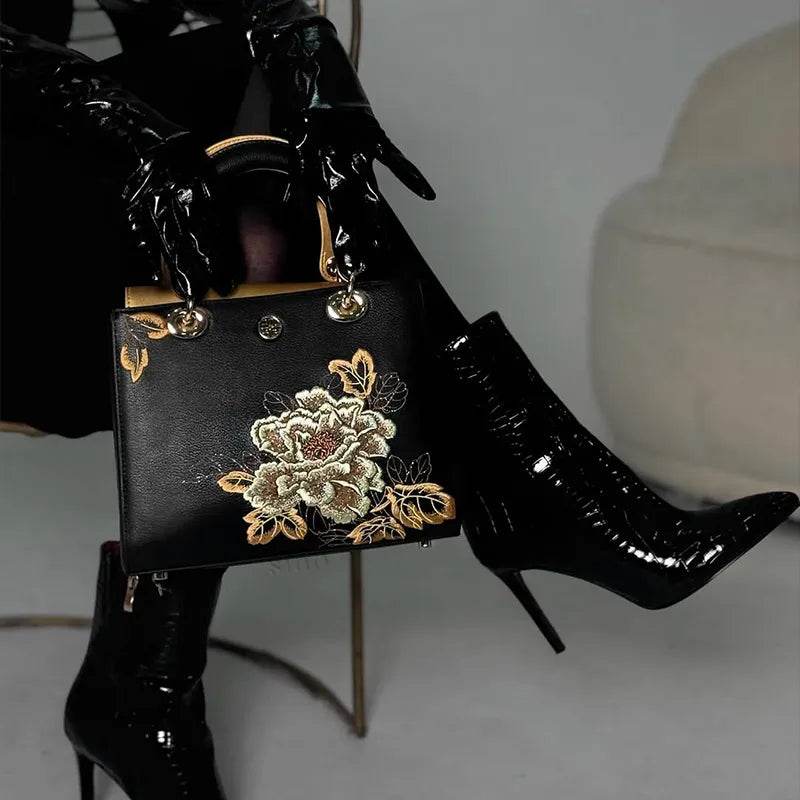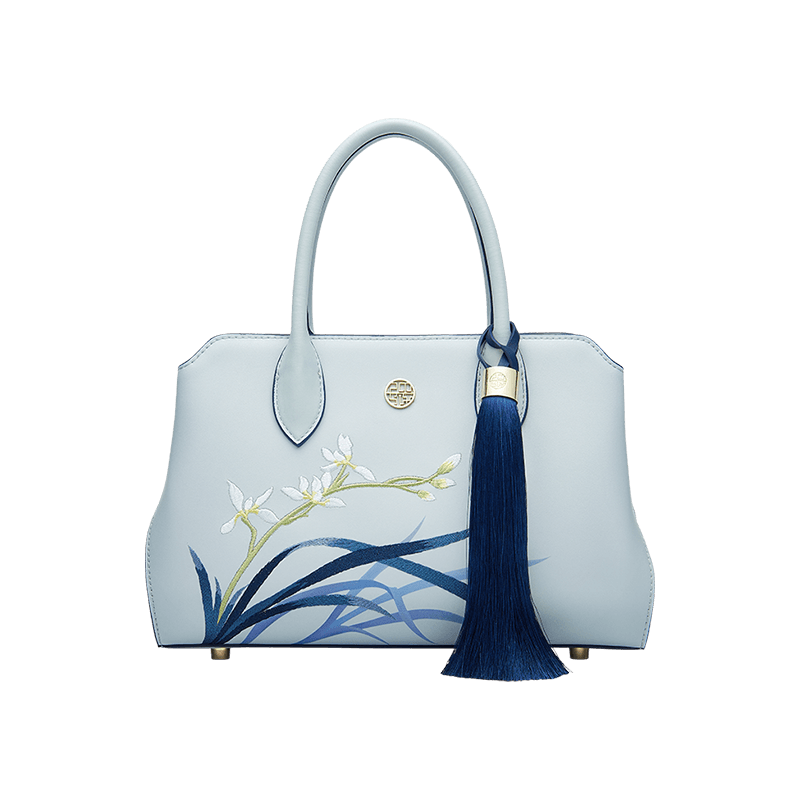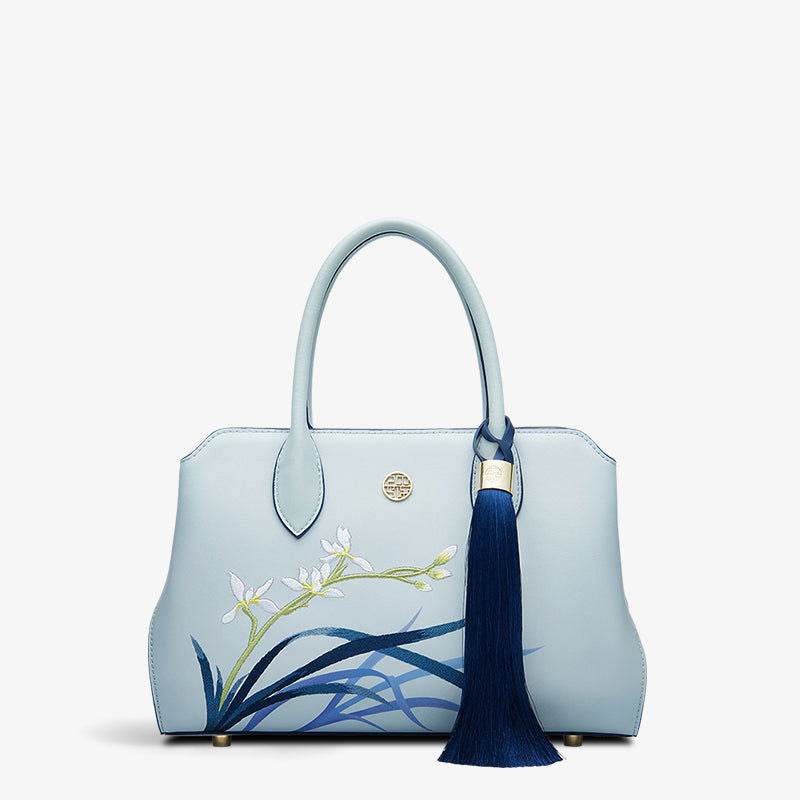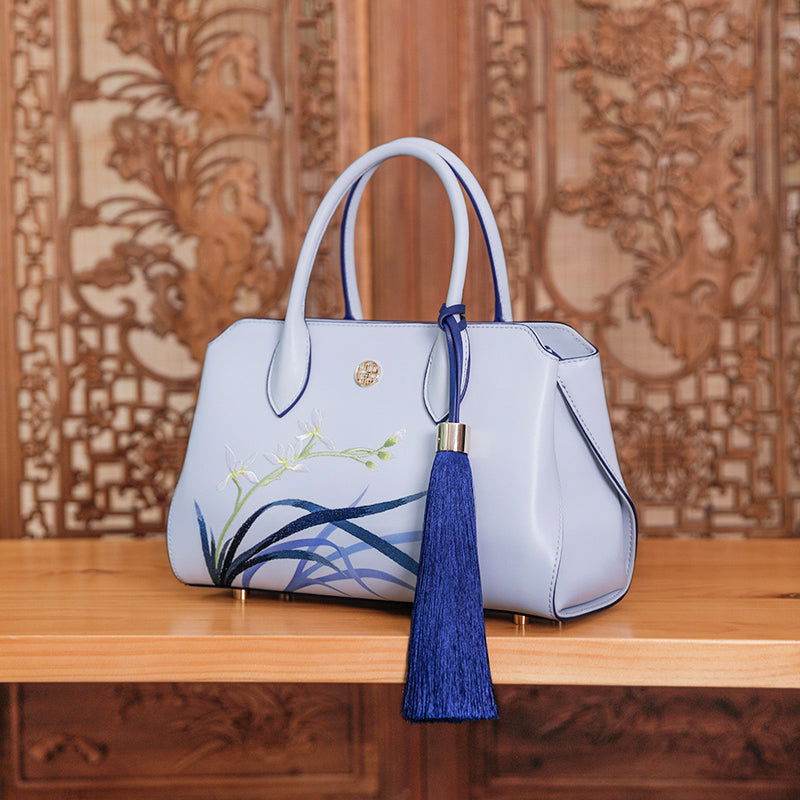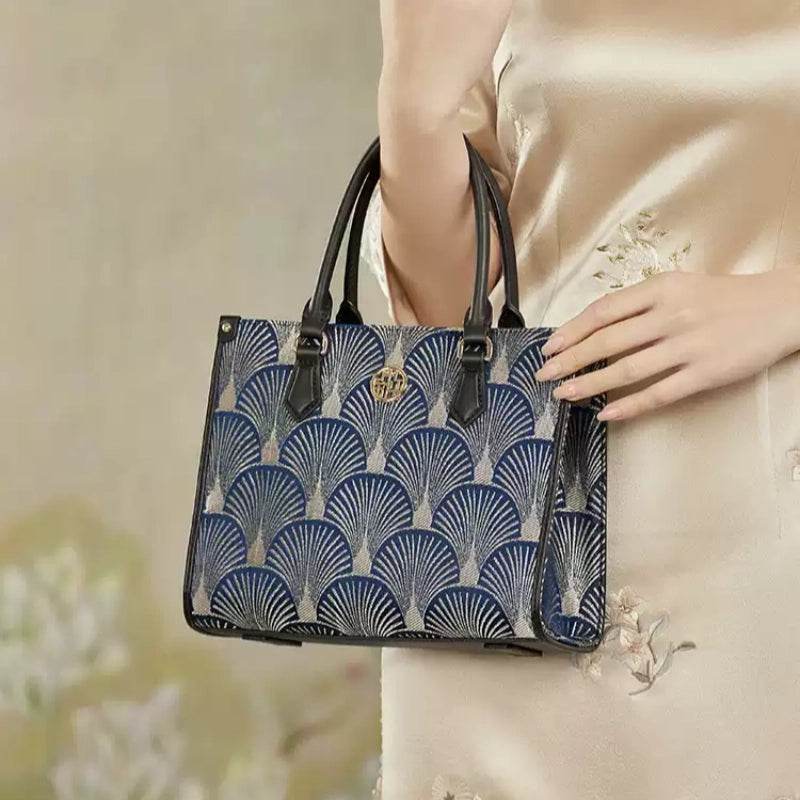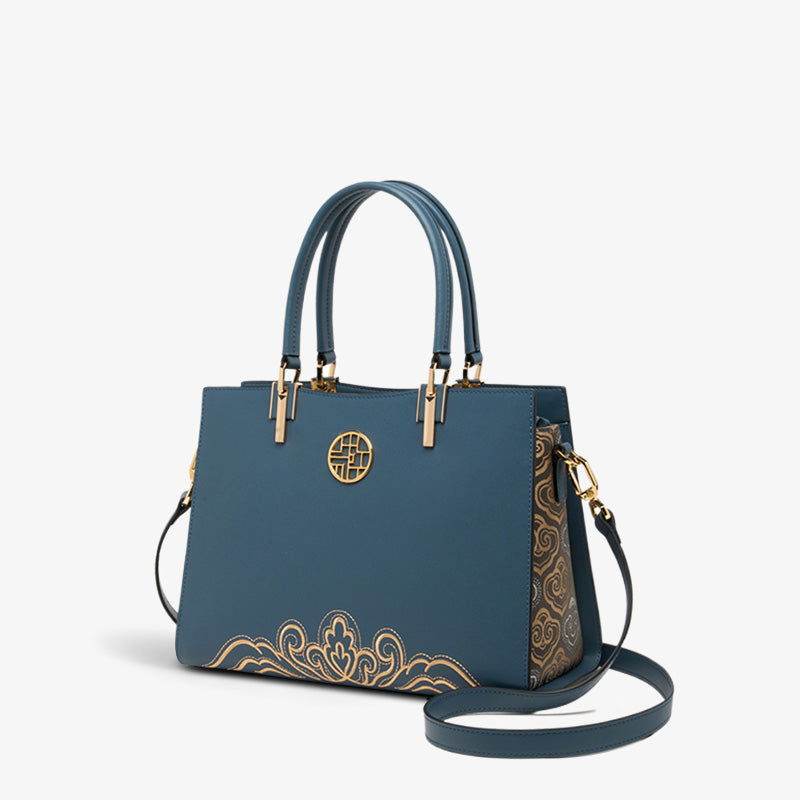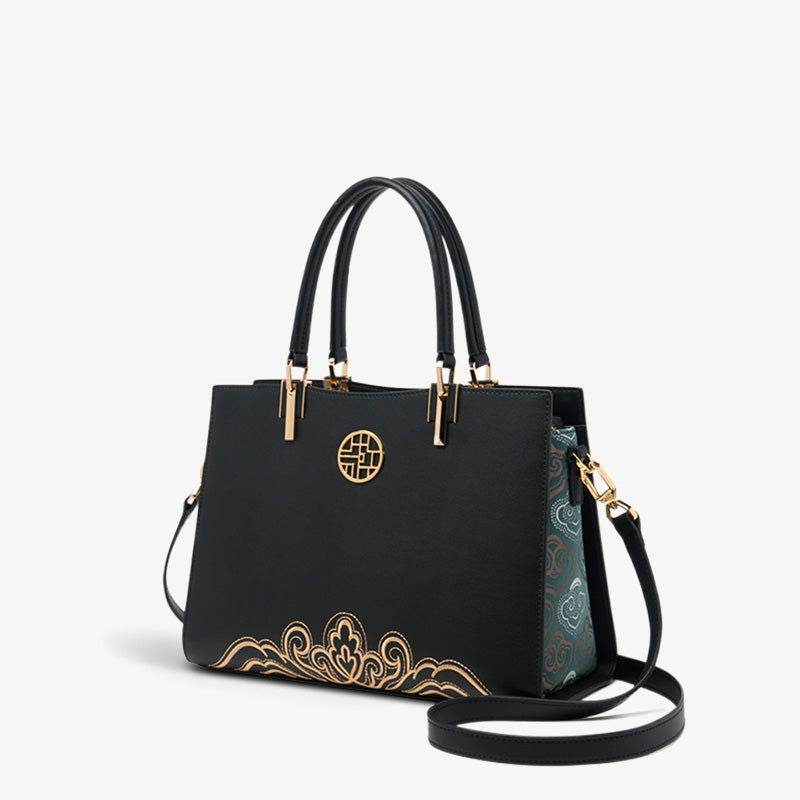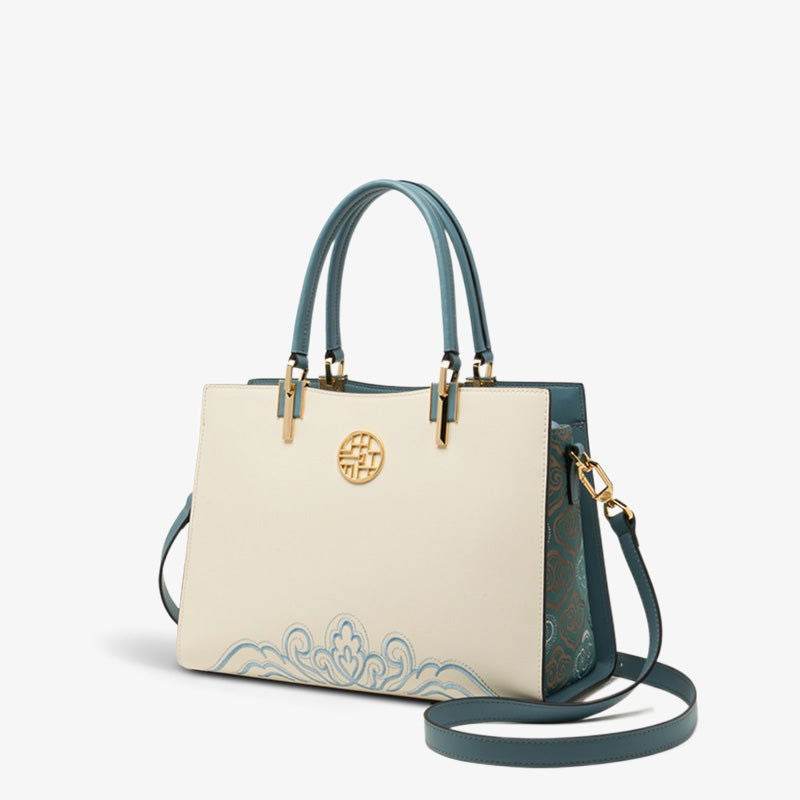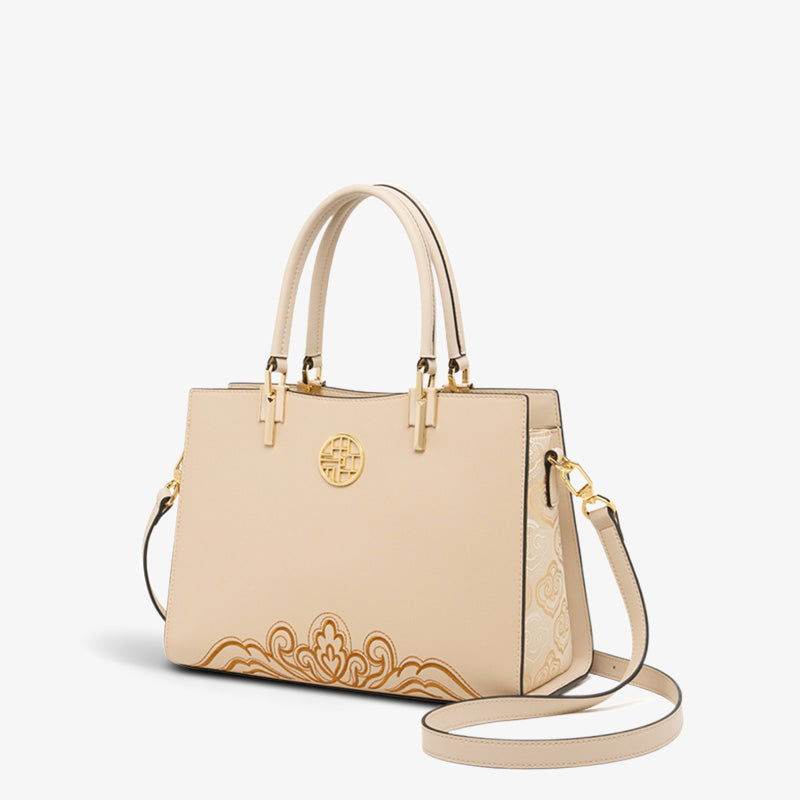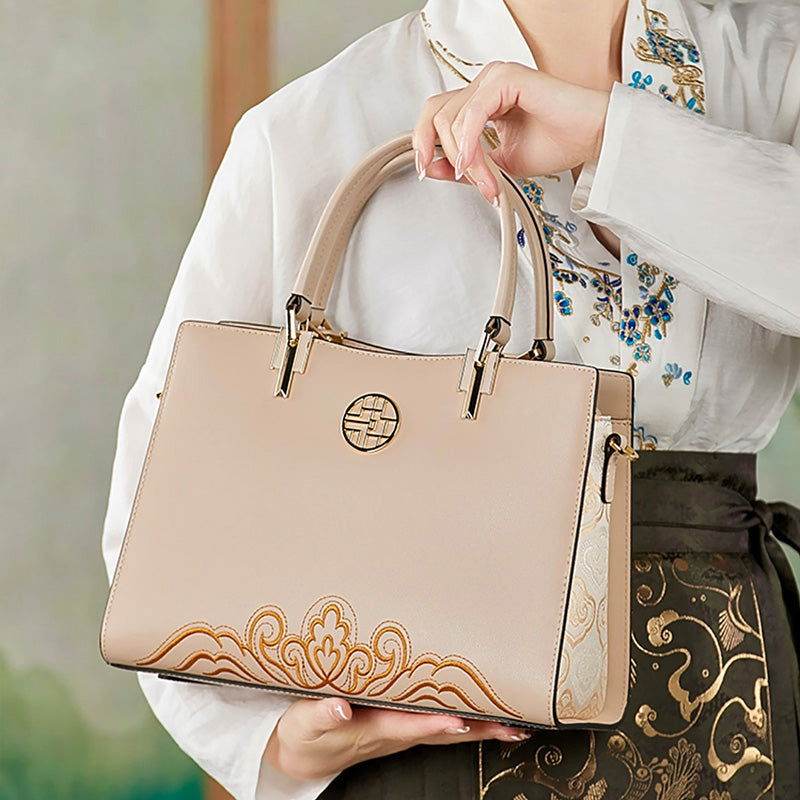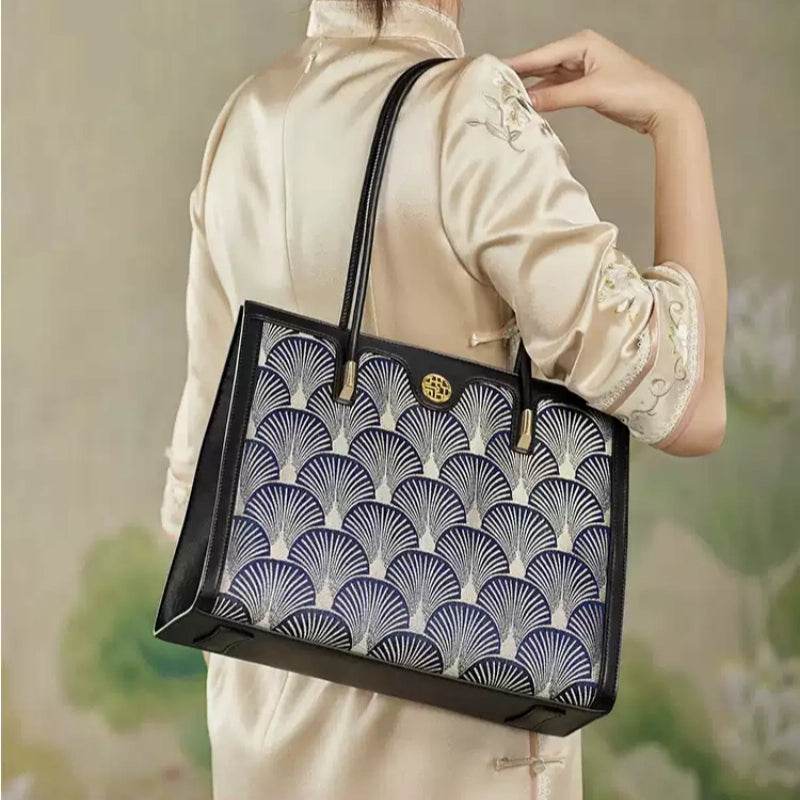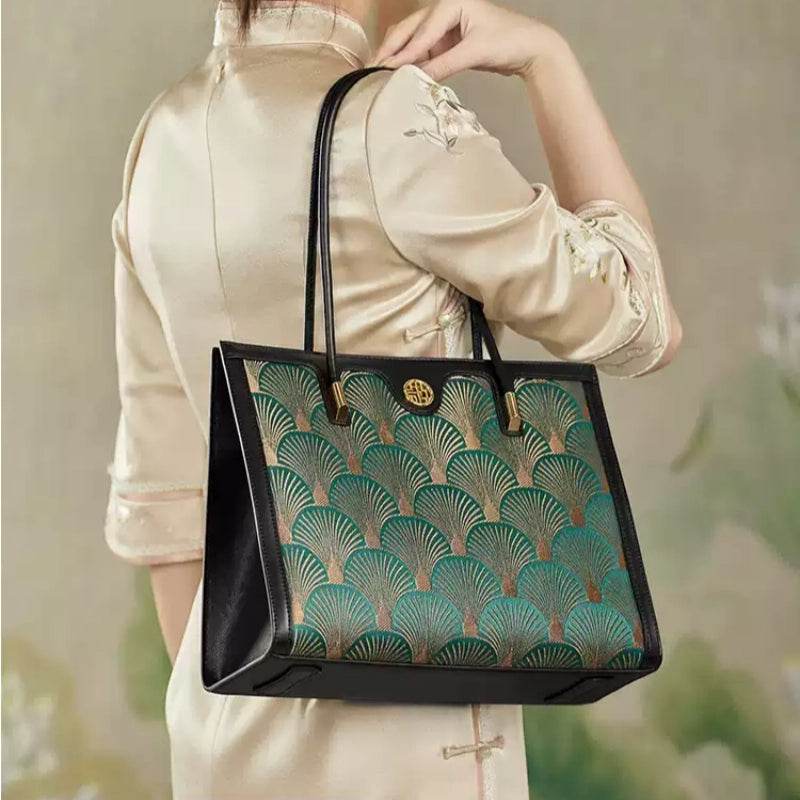Under the starry summer sky, lovers in China once looked up, believing that the Cowherd and Weaver Girl met across the Milky Way. This legend gave birth to Qixi七夕—the Chinese Valentine’s Day—a festival where romance and artistry intertwine.

A Celebration of Craftsmanship and Tradition
Originally named the "Qiqiao Festival" or "Daughter's Day," Qixi was a time when women gathered to showcase their skills in needlework and craftsmanship. They would engage in activities like threading needles and testing their dexterity, hoping to gain wisdom and improve their skills. This festival began as a celebration of female craftsmanship and has evolved into a day of expressing romantic wishes.
Just as the Weaver Girl’s loom wove threads of love across the heavens, Chinese modern artisans continue to weave romance into silk, embroidery, and handbag. At Sinocultural, we carry forward this spirit—transforming heritage crafts embroidery handbag into timeless piece for today’s world.

The Legend of the Cowherd and the Weaver Girl
At the heart of Qixi lies one of China’s most cherished love stories—the legend of the Cowherd and the Weaver Girl. The Weaver Girl, a celestial maiden gifted in weaving, fell deeply in love with the Cowherd, a humble mortal. Their forbidden love angered the Jade Emperor, who cast the Milky Way between them, keeping the lovers apart. Yet, once a year, their devotion moves magpies to form a bridge across the stars, reuniting them for just one night.
For Chinese culture, this tale carries the same romantic weight that Valentine’s Day does in the West. Both celebrate enduring love, but Qixi adds a celestial touch—where love isn’t only about hearts and roses, but about constancy, sacrifice, and a reunion written in the stars.

Traditional Qixi Customs
The festival is rich with traditional customs and activities, many of which revolve around showcasing and testing various skills:
-
Needle Threading Under the Moonlight: This challenging game involves threading needles with multiple eyes under the moonlight, reflecting the participants' skill and dexterity. Traditionally, women used special needles with seven or nine eyes for this task, and the quickest to complete the task was considered the most skilled.
-
Crafting Delicacies: Traditional foods like "Qiqiao fruit," made from oil, flour, sugar, and honey, are prepared during this festival. Skilled women would create intricate designs, such as flowers or birds, reflecting their culinary expertise.
-
Various Activities: The festival also includes activities like praying to the Weaver Girl, testing needle skills, and other traditional rituals. These customs highlight the importance of skill and artistry, rather than romance alone.

The Modern Significance
Today, while Qixi Festival still honors traditional craftsmanship, it has also become a time to celebrate romantic relationships, mirroring its association with the legendary love story. It stands as a reminder of the values of skill and perseverance and encourages individuals to cherish and develop their talents.
A Tribute to Women's Skills and Independence
In ancient times, women showcased their skills in various fields, from cooking and medicine to commerce and poetry. This festival not only celebrates romantic love but also honors the empowerment and achievements of women. As the writer Xiao Qiushui aptly put it, "Everyone desires freedom, but freedom requires conditions. The most important condition is a skill that provides for one's livelihood."That spirit continues today. At Sinocultural, Master Wang Xinyuan recently traveled to Guizhou to offer Cantonese embroidery courses, giving local women the chance to learn a skill that empowers both their independence and their livelihood.
Whether you're celebrating romance or honoring your craft, Qixi Festival remains a beautiful blend of tradition and modernity, reflecting the enduring elegance and strength of women throughout history.
Celebrate Qixi Festival with us and immerse yourself in the beauty of tradition and the magic of timeless craftsmanship!
